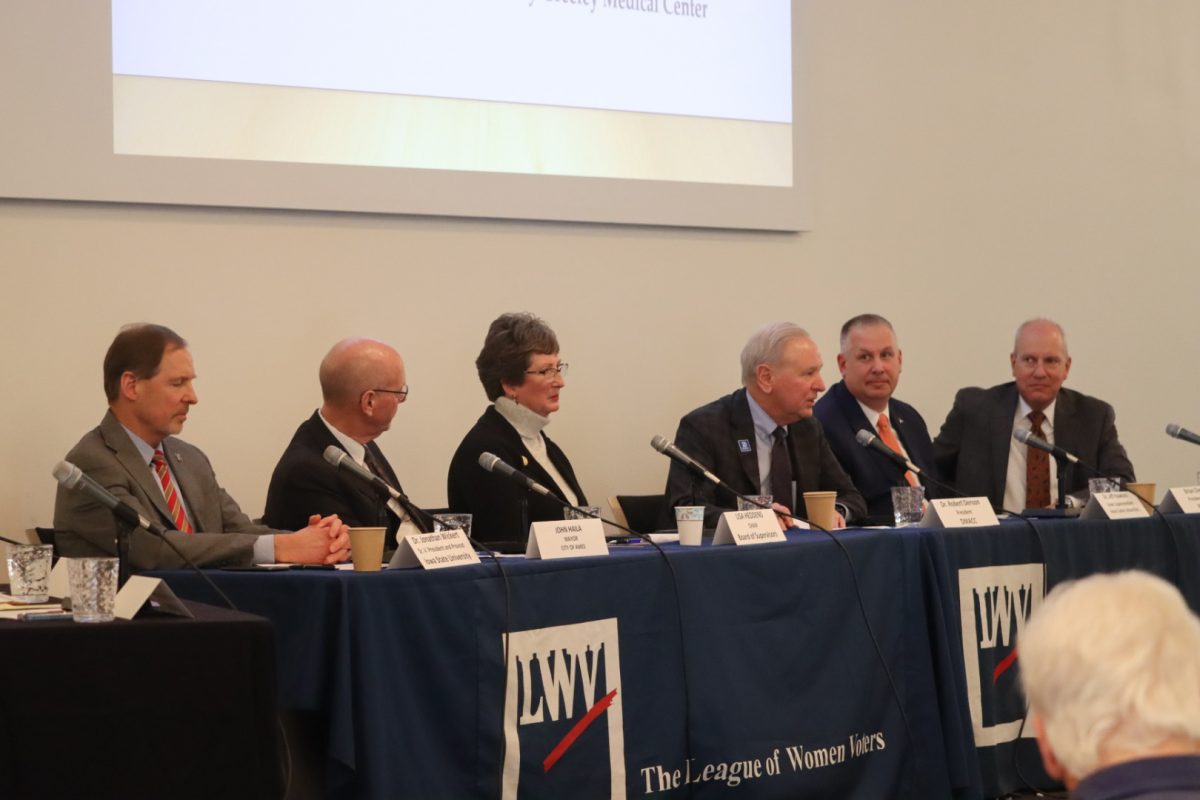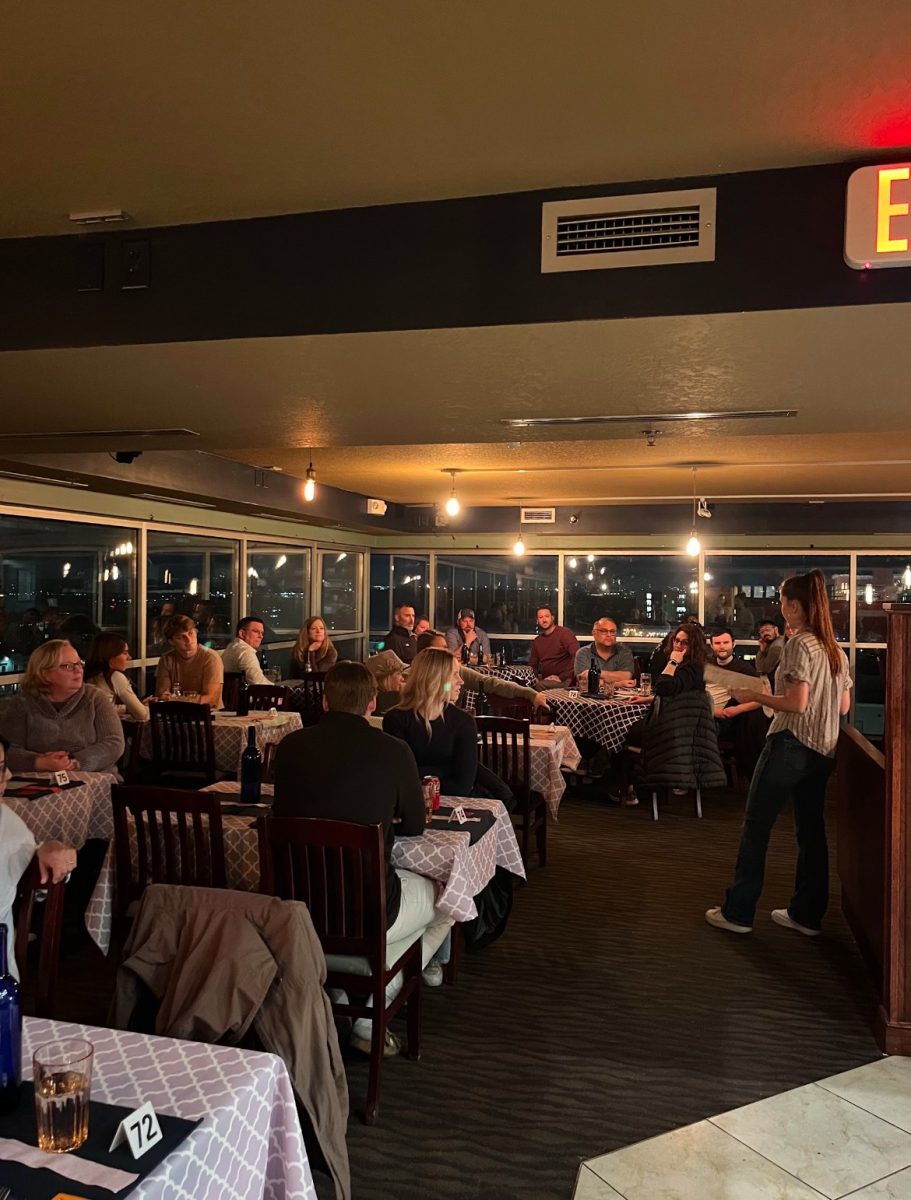Punk evolves into something corporate
September 22, 2002
Being punk rock used to mean shunning anything corporate. Punk rock was supported by an underground society, and anybody who breached the underground agreement was considered a “sellout.”
However, it’s hard to avoid the punk rock offsprings inundating radio and MTV.
Many bands have jumped off independent labels in pursuit of a major label contract.
Along with this shift into mainstream music, punk rock has a new face. Two elements being incorporated into traditional punk include a more pop-oriented sound and screamy, hardcore vocals. These elements can be witnessed Monday at the Maintenance Shop when Midtown and Recover play for a sold-out crowd.
Gabe Saporta, bassist and vocalist for Midtown, has a lot to say about the shift from punk rock to pop-punk. He speaks so swiftly on the subject it’s hard to soak in his ideas before he squeezes out another one.
Along with the pop-punk sound comes the punk ideology. But Saporta is worried the shift from punk rock to pop-punk has eluded punk’s fundamental meaning – providing a marketplace of ideas.
“The scene has become, in recent years, more of a fun thing than it has been meaning or a purpose,” Saporta says. “But the thing is, if that stuff stops being fun and there’s nothing underneath it that’s meaningful, it will just disappear. And I’d hate to see it all disappear.
“I don’t have a problem with a singer being pop-punk, or whatever style of music it is. But I have a problem that when the shift happens the ideas are lost.”
One way Midtown’s members, all vegetarians and animal rights advocates, are trying to express ideas is through People for the Ethical Treatment of Animals, or PETA. PETA representatives are on hand at Midtown’s shows to pass out animal rights literature. Saporta says it’s important that shows remain a venue to express new ideas. Midtown also tries to do that through its lyrics.
Recover, a band out of Texas, isn’t trying to express ideas through its music as much as it’s trying to express emotions, says Dan Keyes, guitarist and vocalist.
Recover and similar bands such as Thursday, Poison the Well and Song of Zarathustra employ screamy, hardcore vocals into their music. Screamed vocals give Recover’s music an aggressive edge, and express thoughts and emotions differently than sung vocals are capable of.
“We’re just upset about some stuff and we want to scream about it,” Keyes says. “If you listen to us scream, it’s kind of in tune. Kinda. I think if there’s ever a time that there’s no screaming in our music, there will still be lots of emotion. Screaming just adds different kinds of emotions, more angry emotions.”
With this aggressive edge, many bands incorporating hardcore vocals entice crowd interaction. Keyes says Recover does see this in some locations, but not all.
“It’s usually the smaller towns that freak out, because they’re bored,” Keyes says. “They want to go crazy, and they’re all sexually frustrated.”
The new faces of punk, with a pop sound and screamy vocals in its arsenal, continues to plow its way onto MTV and MTV2. Saporta is excited by the shift to mainstream, because that means the bands who strive to keep punk rock ideals alive get a larger vehicle to express views.
“I think that’s amazing because I think those ideas are getting more exposure,” Saporta says. “When bands like that get into mainstream, they influence people in a positive way.”
Keyes attributes the shift of punk from underground to mainstream to bands such as At the Drive In and Jimmy Eat World, who have recently received a lot of attention in the music world.
And as more bands get more exposure through bands that have already tasted success, other bands will follow suit.
An underground genre is once again moving away from the underground ideology, leaving a vacancy in its shadow.
“On one hand, that sucks, because now what we’re doing isn’t as underground as it was,” Keyes says. “But what’s next as far as underground music goes? That’s kind of exciting.”






